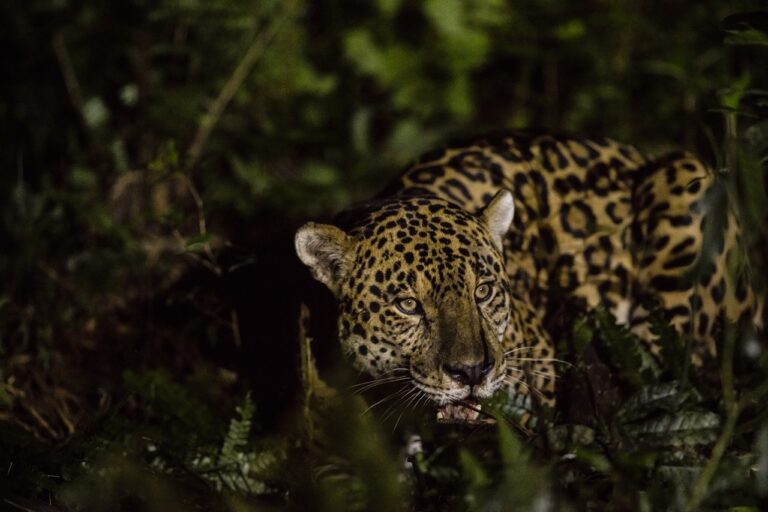Founder’s Briefs: An occasional series where Mongabay founder Rhett Ayers Butler shares analysis, perspectives and story summaries. Once vanishing from view in the dense Atlantic Forest, jaguars are again stalking the undergrowth of Iguaçu National Park in Brazil. Their comeback — numbers have more than doubled in the region since 2010 — is a rare success in the world of large carnivore conservation, reports Mongabay contributor Sarah Brown. The recovery owes much to an unusual alliance of biologists, bureaucrats, border-straddling NGOs and a crochet collective of local women. The jaguar (Panthera onca) population in the Brazil-Argentina Green Corridor, a 185,000-hectare (457,000-acre) stretch of forest, had collapsed by the late 2000s. Habitat loss and retaliatory killings had reduced sightings to almost none. But cross-border collaboration — between Brazil’s Jaguars of Iguaçu Project and Argentina’s Proyecto Yaguareté — has helped the population grow to at least 105 individuals. It may still be isolated from other jaguar populations, but it is now stable and even cautiously expanding. Such progress did not come from enforcement alone. Efforts have ranged from ecological monitoring and rapid-response conflict mitigation to educational programs in local schools and technical support for farmers losing livestock to predation. Crucially, outreach efforts have built trust. Landowners who once reached for rifles now call biologists. A notable innovation is the Jaguar Crocheteers, a women-led artisan group supported by the conservation team. Based in communities bordering the park, they produce jaguar-themed crafts sold to tourists and used in awareness campaigns. For some, the income is…This article was originally published on Mongabay
Search
Recent Research
Want your Blog Article featured on our website?
Research
Featured News
COP30: Firm to connect institutions with international climate finance opportunities
SISTME, a climate change and biodiversity conservation consulting firm based in Argentina, has offered to
From resistance to planetary governance, Indigenous women redefine global climate action
While world leaders negotiate behind closed doors in the Blue Zone of COP30, Indigenous Women
Sahara Group Foundation launches 16th Sahara Go Recycling Hub to boost environmental sustainability, economic empowerment
Sahara Group Foundation, the corporate social impact arm of Sahara Group, has commissioned its 16th
Climate finance is the lifeblood of climate action – Simon Stiell at COP30
Remarks delivered by UN Climate Change Executive Secretary, Simon Stiell, at the third High-Level Ministerial
UNDP, REA, GEF commission Plateau solar mini-grid to power agricultural value chains, empower rural communities
The United Nations Development Programme (UNDP), in partnership with the Rural Electrification Agency (REA) and
COP30: Africa urges world leaders to turn pledges into action
Africa has called on the world leaders to turn their pledges into action regarding the
Thousands join global marches calling on govts at COP30 to deliver climate justice
An estimated 30,000 people marched through the Brazilian city of Belém on Saturday, November 15,
Week in wildlife: a ferocious wildcat, a cheeky seal and a disgruntled lioness
The best of this week’s wildlife photographs from around the world Continue reading...


